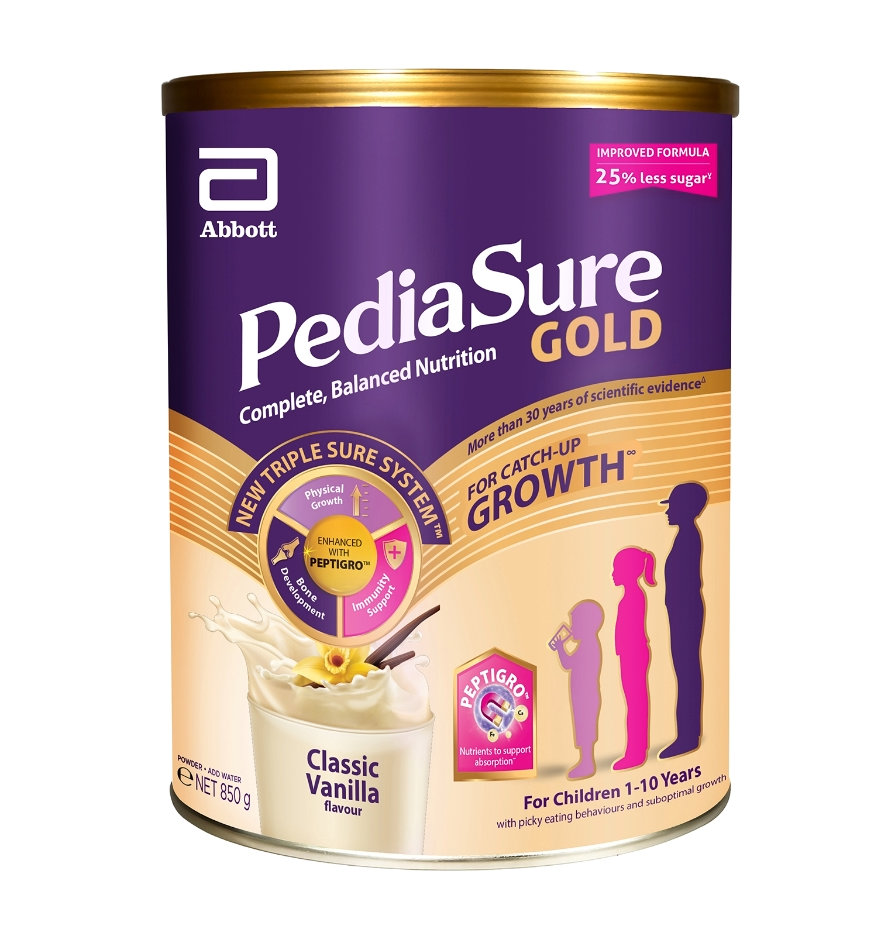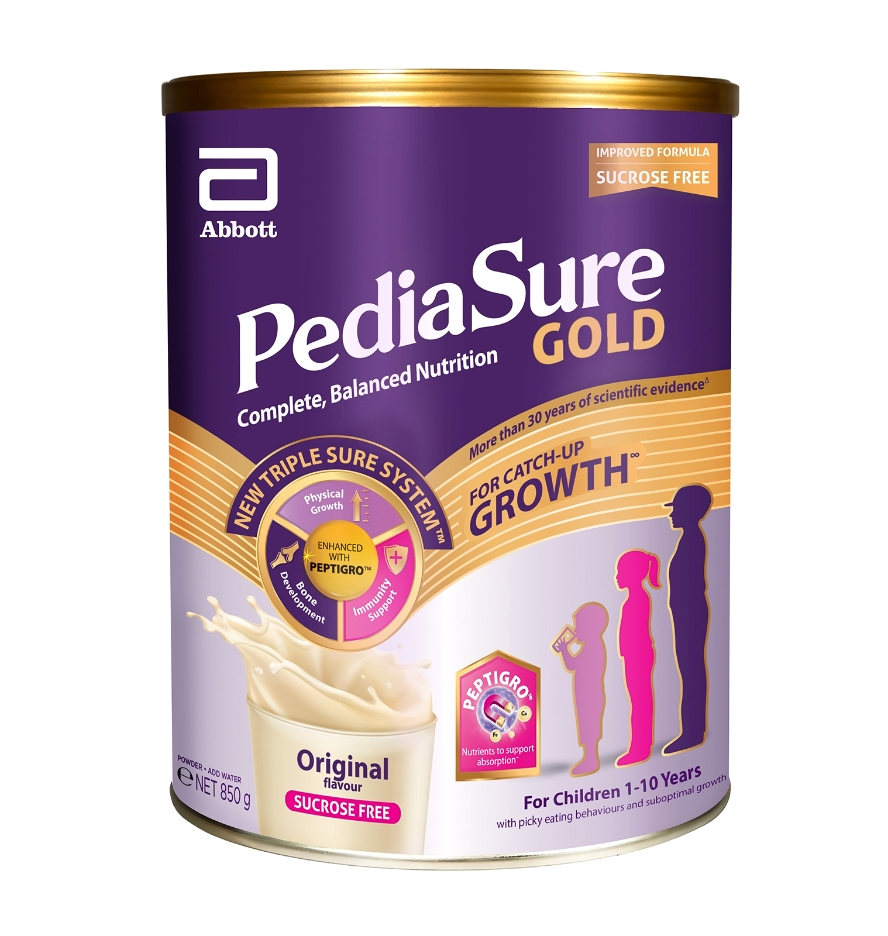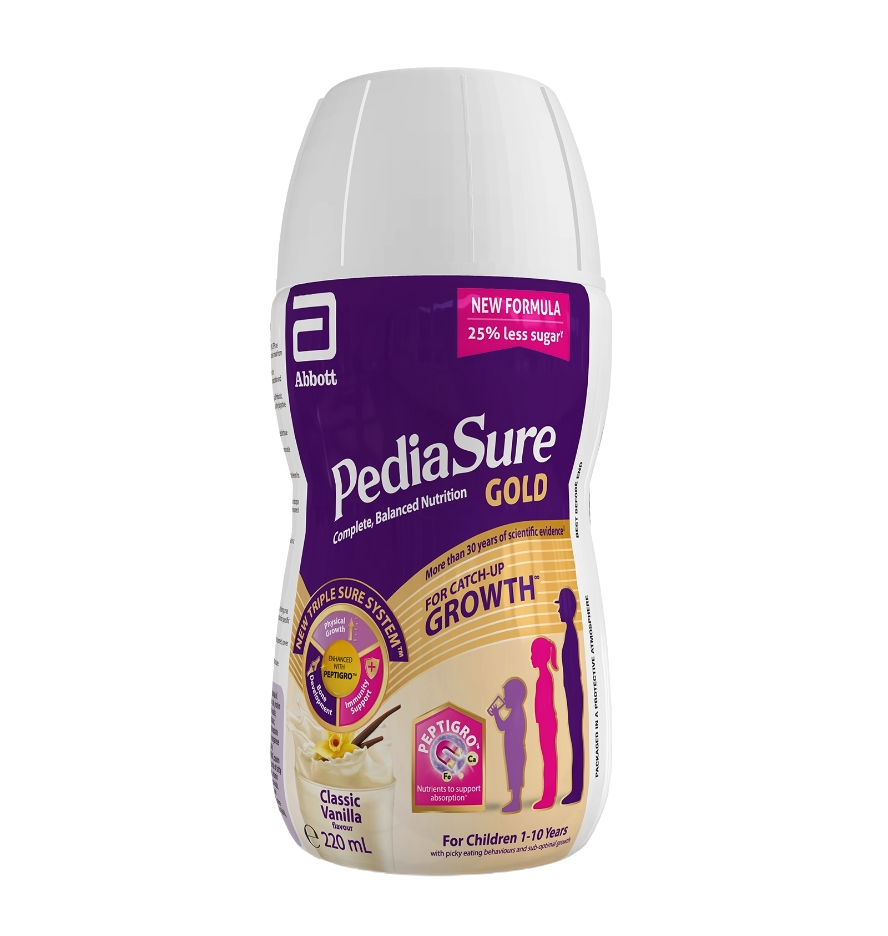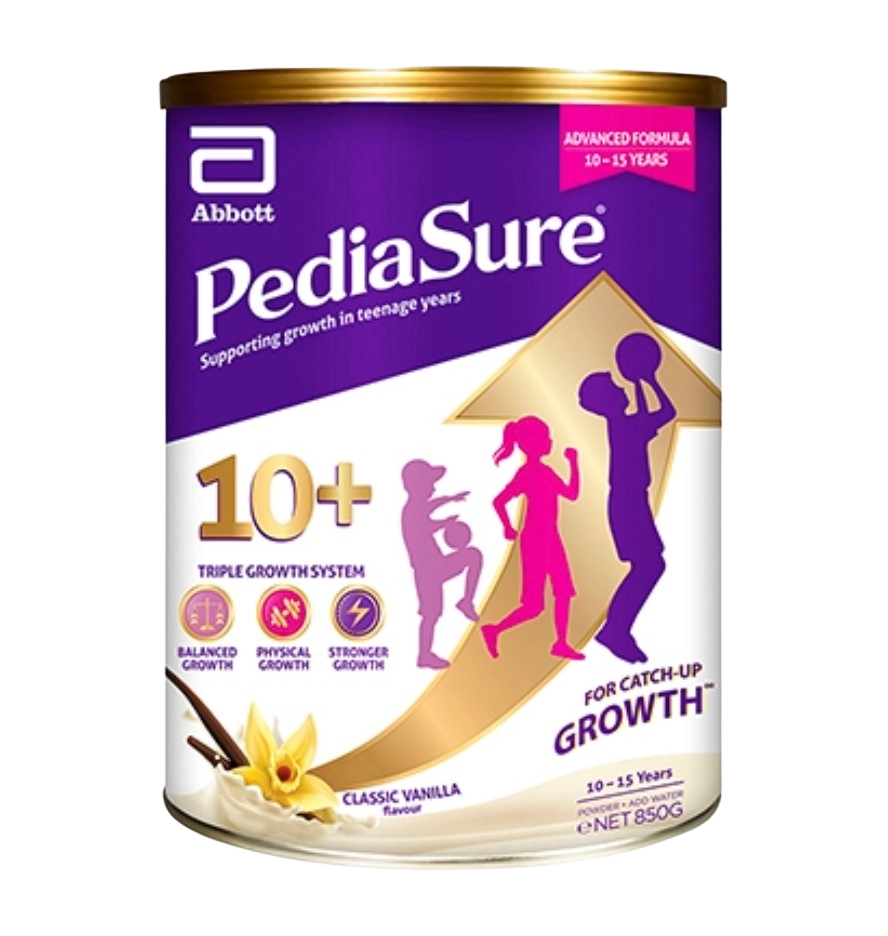Do Not Miss Out On The Last Growth Spurt Window
Fight the food battles right – Tips to improve dietary habits
Getting your teen to eat healthily doesn’t mean asking them to give up on all their favourite foods. It simply means feeding them a variety of foods across food groups and reducing the quantity and frequency of food or beverages high in fat and sugar, such as soft drinks, cookies, cakes and deep-fried food. Some tips to improve dietary habits include:
- Make breakfast a habit – Skipping breakfast affects energy levels for the rest of the day
- Make family mealtime a priority – Being the right role model for your teens is the first step to helping them establish healthy eating habits
- Get teens involved in meal planning to give them a sense of ownership
- Start small but make progressive changes – Start by making one swap at a time – replacing a nutrient poor choice with nutrient dense food or beverage
Consider the use of a complete, balanced oral nutritional supplement
Oral nutrition supplements may help adolescents to plug nutritional gaps (e.g. for those with poor appetite), replace unhealthy food or drink options, or support an active lifestyle The ideal supplement for your teen should be tailored to meet the increased needs for key nutrients during the period of accelerated growth. A complete, balanced oral nutritional supplement that supplies a wide range of micronutrients would be more advantageous than conventional beverages which tend to be less nutrient dense.










